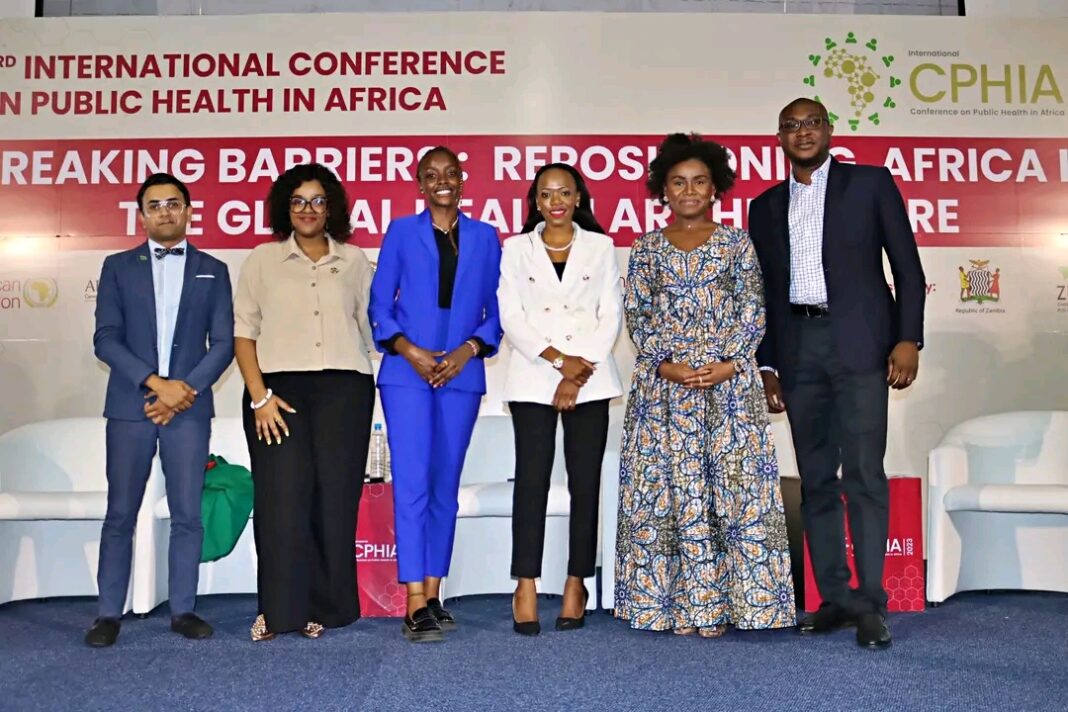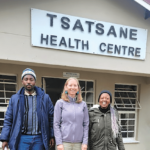Ntsoaki Motaung
Aviwe Funani, the Senior Policy and Advocacy Officer for United for Global Mental Health, emphasised a groundbreaking discovery that places mental health as a pivotal cross-cutting concern alongside Sexual and Reproductive Health and Rights (SRHR).
At the 3rd International Conference on Public Health in Africa (CPHIA 2023) in Lusaka, Zambia, attended by African Heads of State, health ministers, and prominent scientists, innovators, and researchers, Funani highlighted the precarious state of mental health among young individuals, particularly young women and unborn children.
She articulated that the mental well-being of young women is notably fragile, along with the vulnerability of unborn children.
She underscored a critical point, stating that children born to young mothers face heightened risks of developing mental health conditions.
“Research indicates that the onset of various mental conditions often initiates around the age of 14,” she elucidated, pointing out the challenges young mothers face during the maternal stage, encompassing stigma, shame, and exclusion.
These challenges, according to Funani, contribute to conditions such as anxiety, depression, and postnatal depression, impacting both the mother and child’s relationship.
In emphasising the global relevance of mental health, she stressed the necessity of recognising mental health as an essential human right to address its intersectionality with policy.
She drew attention to the strikingly low financial investment in mental health across various policy departments, notably in the realm of investments.
“Globally, mental health receives less than two percent of financial contributions. Shockingly, when considering children and young people, it plummets to just US$0.01,” she revealed, highlighting the stark disparity in funding allocation.
Funani underscored that this disparity in funding underscored the critical need to reevaluate policy perspectives, emphasising the pressing importance of increased financial investment in mental health from a global perspective.
She further underscored the systemic failure in policies to integrate mental health seamlessly across various societal domains, including education and economics.
She highlighted the critical intersection between mental health and broader social issues.
“Neglecting the recognition and prioritisation of mental health jeopardises the attainment of Sustainable Development Goals (SDGs). Equity is pivotal in achieving these goals, and mental health stands as a key component; without it, the 2030 objectives remain unattainable,” she said.
Meanwhile, Dr. Naeem Dalal, a Youth Mental Health Expert at the Zambia National Public Health Institute, highlighted a significant research gap pertaining to mental health across the African continent.
Dalal pointed out the alarming statistics indicating that more than 50 percent of deaths by suicide occur among men, attributing this trend to socio-stereotypes ingrained in the upbringing of boys.
“Societal expectations groom boys to become breadwinners, encouraging emotional suppression. Despite evolving societies, the education on coping mechanisms for these changes remains lacking,” he lamented.
Dr. Makhoase Ranyali, head of Family Health and Public Health representing Lesotho at the conference, addressed the prevalent mental health issue among the youth in Lesotho.
Stressing the need for effective strategies, Ranyali advocated for an integrated healthcare approach, urging coordination among relevant ministries to achieve universal health coverage.
“The amalgamation of health services and coordinated support across ministries is pivotal for a unified health approach. This approach is crucial in addressing prevalent problems, including mental health, especially among the younger generation,” she said.
In a youth pre-conference organised by the Africa CDC before the 3rd CPHIA International Conference, several youth groups participated in a competition proposing initiatives to address mental health issues.
The Head of the Project, Strengthening Crisis and Pandemic Response in Africa, hailed this as a remarkable indication of heightened awareness and significance attached by the younger demographic to mental health issues.
“This initiative showcases the proactive engagement of young people in tackling mental health concerns, marking a significant achievement not just for the global mental health community but particularly for the African continent,” he said.
Summary
- At the 3rd International Conference on Public Health in Africa (CPHIA 2023) in Lusaka, Zambia, attended by African Heads of State, health ministers, and prominent scientists, innovators, and researchers, Funani highlighted the precarious state of mental health among young individuals, particularly young women and unborn children.
- Naeem Dalal, a Youth Mental Health Expert at the Zambia National Public Health Institute, highlighted a significant research gap pertaining to mental health across the African continent.
- “This initiative showcases the proactive engagement of young people in tackling mental health concerns, marking a significant achievement not just for the global mental health community but particularly for the African continent,” he said.

Your Trusted Source for News and Insights in Lesotho!
At Newsday Media, we are passionate about delivering accurate, timely, and engaging news and multimedia content to our diverse audience. Founded with the vision of revolutionizing the media landscape in Lesotho, we have grown into a leading hybrid media company that blends traditional journalism with innovative digital platforms.








